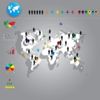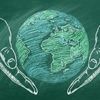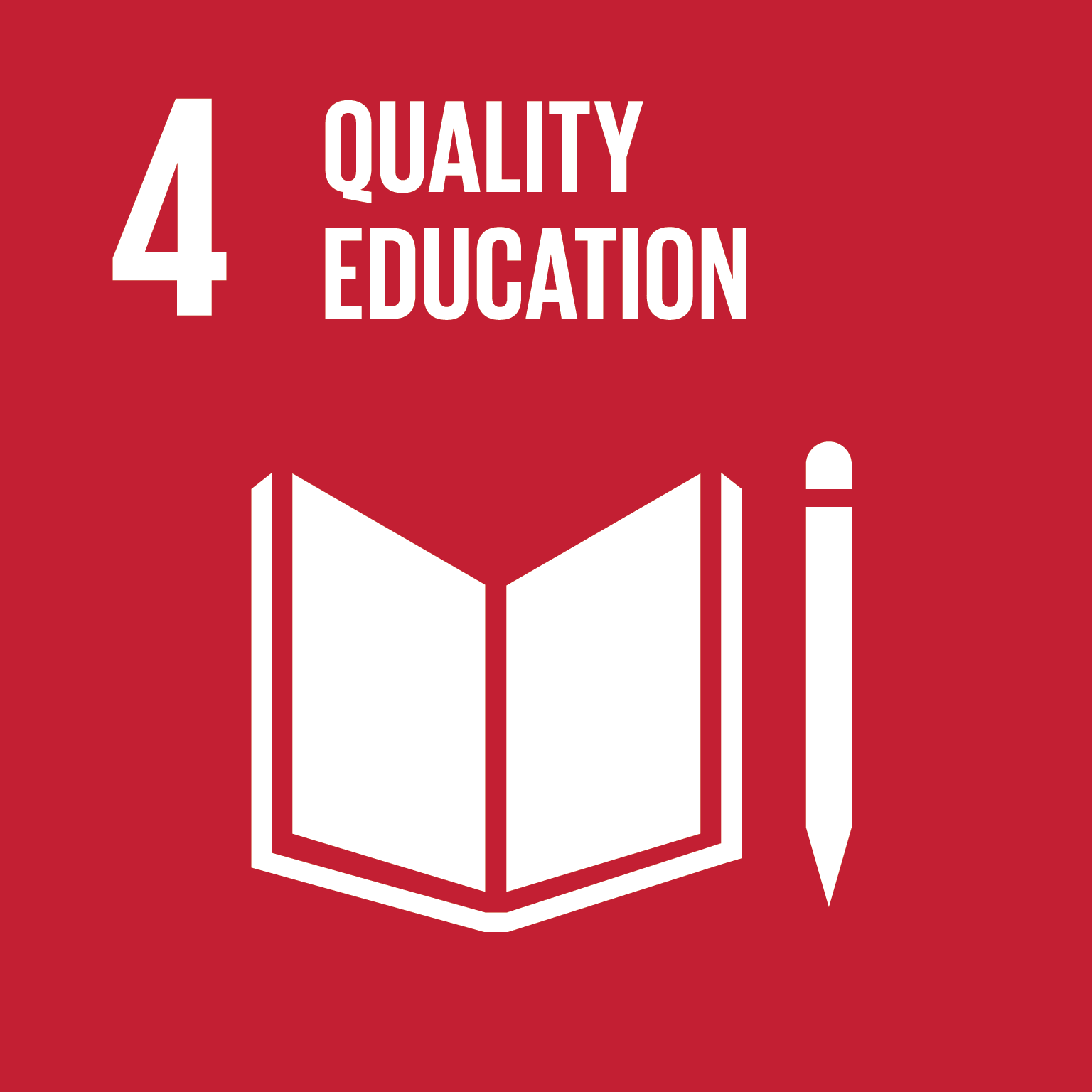2022 UN Transforming Education Summit - Solutions Day Events
The second day of the Transforming Education Summit focused on initiatives already underway or in the planning stages. Following an opening plenary session, fifty events were offered throughout the day. All Solutions events were organised by at least three entities from at least two different member states, in an effort to encourage diversity. Each event was connected to one of the Summit’s Action Tracks:
- Inclusive, equitable, safe and healthy schools
- Learning and skills for life, work and sustainable development
- Teachers, teaching and the teaching profession
- Digital learning and transformation
- Financing of education
The following reviews cover some of the events attended by World Goodwill representatives.
|
|
|
|
|
 |
 |
|
|
|
|
|
|
 Greening Education Partnership: Getting Every Learner Climate-ready
Greening Education Partnership: Getting Every Learner Climate-ready
a Solutions Day event organised by UNESCO, Japan and the UK
This event came under Action Track 2 concerning Learning and skills for life, work and sustainable development and, as the title implies, focused on Education as a means to promote sustainable development.
It advocated the notion of a new capitalism founded upon sustainability, with Japan highlighting that sustainability has to be liberated from its narrow economic mantle to also encompass psychological, physical, and social health.
A very interesting and very valid point highlighted was education’s potential to be a transformative social factor not only in the long-term but in the short-term too since activities, mentalities and habits can spread quickly and naturally from children to adults without the allocation of additional resources.
Statistically, approximately 40 million children are being deprived of access to education due to extreme weather events and as recent experience has shown, this shocking situation is unlikely to be reversed in the short-term without urgent remedial action.
UK presented the National Education Nature Park Scheme, an initiative aiming to encourage pupils, and high school and university students across England to participate in the digital mapping of their local natural resources. This hands-on project seeks to build an understanding of local biodiversity and how ecosystems work, as well as skills in data collection, analysis and sharing.
 Schools2030: Re-imagining the Roles of Schools, Systems and Societies for the Future of Teaching and Learning
Schools2030: Re-imagining the Roles of Schools, Systems and Societies for the Future of Teaching and Learning
a Solutions Day event organised by Portugal, Tanzania, UNICEF, Schools2030, Aga Khan Foundation, UNESCO, GPE, LEGO Foundation and Generation Unlimited.
A compelling event on the social role of schools and of the teaching profession that came under Action Track 3 on Teachers, teaching and the teaching profession. In little more than an hour, the event showcased the primary role of purpose in effectively determining the pedagogical core and method of schooling. The triplicity of purpose, pedagogical means, and method of implementation was clearly presented, principally by the LEGO Foundation representative, who furthermore introduced the www.bigeducationconversation.org which encourages a focus on the purpose of education to determine what it is and to define it clearly.
The significance of continuity and of a establishing a coherent learning method, as opposed to a brief intervention in education, was pointed out, as well as the fact that any transformation needs to be carried out horizontally – meaning improving access, and vertically – meaning affecting all ages, from young pupils to adult learners. The Schools2030 project works to encourage non-traditional collaborations, including inter-generational ones.
The reality of climate change in its well-attested consequences in education was emphasised by the contribution from Cambodia which also touched upon the anachronism of diverting educational funding to military defense spending or war.
Finally, Portugal highlighted that there remains a very evident cleavage between theory and practice in education, summing up an issue that troubles most practices outside the sector of finance and economy.
 Effective Educational Ecosystems: Solutions for Open Digital Content
Effective Educational Ecosystems: Solutions for Open Digital Content
a Solutions Day event organised by Nigeria, Finland, Germany, South Africa and UNESCO
 Digital Citizenship skill and artificial intelligence in learning and teaching processes: A human rights perspective
Digital Citizenship skill and artificial intelligence in learning and teaching processes: A human rights perspective
a Solutions Day event organised by the Council of Europe, Slovenia, Greece, UNESCO and UNESCO Centre Ljubljana
Both events centred on Action Track 4 on Digital learning and transformation hoping to make a case for the advantages of utilising digital resources in education as well as to direct attention to the associated risks and the steps taken to neutralise or minimise them.
Chronic misalignment within the educational system, evidenced as conflicting or even sometimes opposing priorities, was presented as a significant factor undermining the quality of education. Digital resources enable rapid feedback loops, which in turn serve to accelerate response and beneficial change, resulting in greater adaptability.
A fundamental statement affirmed that information is a public good and should not be allowed to deteriorate to a public harm through mis- and disinformation and harmful speech. High media literacy is the way to develop discrimination and neutralise this risk as evidenced in Finland, where efforts to educate the population in this respect have been successful. Much of Finland’s success is due to open digital resources that serve their specific purpose individually but collectively cultivate a culture of sharing that transcends national boundaries and is a means of channelling resources from richer to poorer countries.
This point was further highlighted in the second event by clarifying that digital resources are costly but should be seen as investments because once created, they can be disseminated widely and, most significantly, free of charge, to be used again and again, without requiring additional investment in facilities or personnel. They are not equivalent to the presence of a teacher in a classroom but where teachers are absent and classrooms non-existent, they can be a quality alternative.
Still, in the spirit of creating a new education model rather than using new tools to accomplish old ends, the concept of sharing digital resources that are open and accessible to all was strongly emphasised, as they can be a powerful instrument in bridging educational inequalities between rich and poor countries.
For a successful digitisation which respects human rights, four objectives were underlined:
- Understanding infrastructure – users need to understand how technology works, what it takes to create it, and what are the pros and cons involved. This way they can understand the toll it takes on tangible and intangible resources, as well as its positive potential.
- Content, processes, and platforms must be characterised by solidarity, empathy, and openness for self-explanatory reasons.
- Critical understanding must be developed and exercised at every step of the process to ensure we are talking about digital citizenship and not passive users-consumers.
- Art must be included to ensure there will be creativity and innovation as both seem to be absent without art.
Smart machines can improve the quality of life and education processes, but they have to be
- Secure, safe and age appropriate
- Safeguard the privacy of student and teacher information
- Safeguard free will.
Last but not least, users must be capable of self-evaluation shaped by values and be aware of whether they are competently and positively engaged with digital technologies.
 Significant Initiatives of Transformative Education – a Global Citizenship Education perspective
Significant Initiatives of Transformative Education – a Global Citizenship Education perspective
a Solutions day event organised by the Ban Ki Moon Centre, Republic of Korea, Finland, and UNESCO
This event came under Action Track 2 concerning Learning and skills for life, work and sustainable development. It delivered its point by presenting the case study of Belize where the government has chosen to provide a rather extensive educational programme, implemented with significant use of digital resources as well as private funding. Digitisation has improved access to existing resources even for users with quite limited digital means, utilising RORI, and AI that functions through WhatsApp, an application that can even be used over a smartphone and utilises a very small amount of data, meaning it is appropriate for slower connections too.
Education faces both inherent and environmental challenges – this point was emphasised, and education is seen as the way to provide people with the tools to help them identify their own needs and enable them to find a new balance with others, the environment, the planet and technology.
Please find a summary of the UN Transforming Education Summit outcomes here.
Read on The main dynamics active in the 2022 UN Transforming Education Summit here.
Read on Transformative Power of Education here.
Read further on Education in the New Age here.
